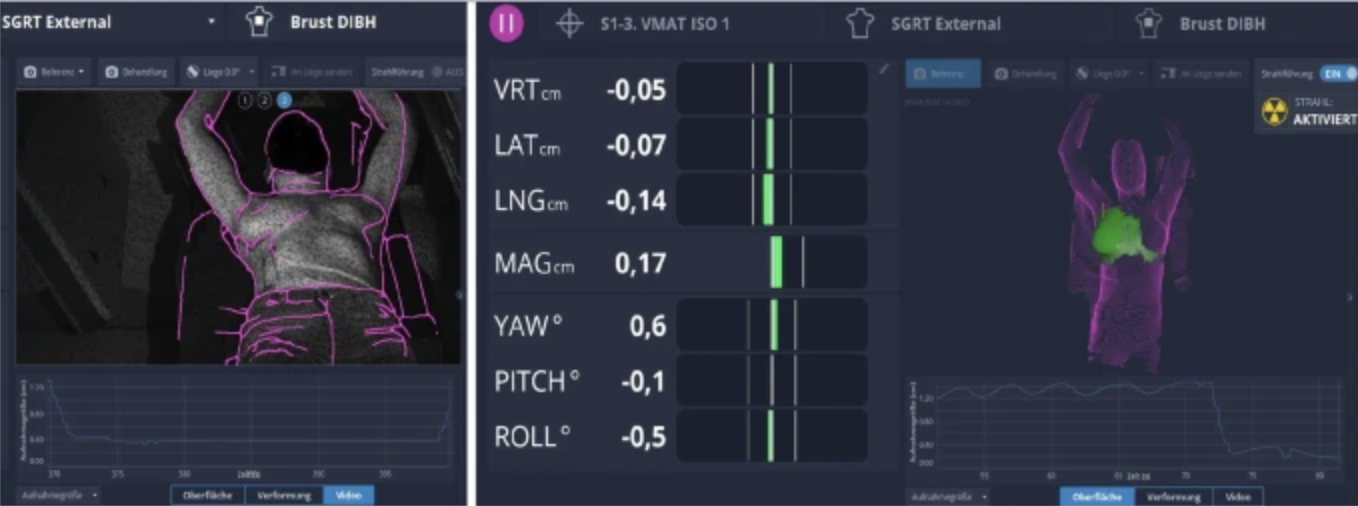Intermountain Health Pioneers Tattoo-Less Radiation Therapy, Revolutionizing Cancer Care Experience
Industry: Healthcare
Intermountain Health has introduced a new tattoo-less radiation therapy in Utah which is revolutionizing the cancer care experience for patients
Salt Lake City, UT (PRUnderground) September 5th, 2025
By offering tattoo-less and mark-less radiation therapy for Utah cancer patients, Intermountain Health becoming first health system in Utah to deploy technology across its entire hospital system statewide.
This innovative approach enhances both the precision of care and the patient experience, eliminating the need for permanent skin markings traditionally used to guide radiation treatment.
The pioneering tattoo-less patient treatments began at Intermountain Health Utah Valley Hospital in Provo, with a phased transition starting in December 2022. By September 2023, permanent tattoos were officially eliminated from radiation therapy protocols at the facility.
Since then, the North, South, and Central Regions of Intermountain Health have successfully adopted this cutting-edge technology, extending its benefits across a wider patient population, including at Intermountain Health Cedar City Hospital, Intermountain Health St. George Regional Hospital, and Intermountain Medical Center in Murray.
“This is a big step forward in how we deliver radiation therapy,” said Rachel Shenker, MD, Intermountain Health radiation oncologist. “For decades, small, permanent tattoos have been a necessary part of ensuring accurate radiation delivery. While medically effective, we recognized the potential emotional and psychological impact these lasting marks could have on our patients, serving as a constant reminder of their cancer journey. Our move to tattoo-less therapy reflects our commitment to holistic patient care, addressing both physical and emotional well-being.”
How Tattoo-Less Technology is Making Treatment Better:
The new tattoo-less system utilizes advanced surface-guided radiation therapy (SGRT) technology, which employs 3D camera systems to precisely track a patient’s body surface in real-time. This allows radiation therapists to position the patient with sub-millimeter accuracy without the need for permanent ink.
Key benefits for patients include:
- Enhanced Patient Experience: Patients are spared the emotional distress and body image concerns often associated with permanent tattoos, which can serve as an unwelcome reminder of their illness. This allows them to move forward with their lives post-treatment without a visible marker of their cancer.
- Increased Comfort and Confidence: The non-invasive nature of SGRT contributes to a more comfortable and less anxiety-inducing treatment experience. Patients can feel more at ease knowing their treatment is precise without enduring permanent markings.
- Superior Accuracy and Safety: SGRT offers real-time monitoring of patient movement, even subtle shifts like breathing. If a patient moves outside the pre-set threshold, the radiation beam can be automatically paused, ensuring the radiation is delivered only to the targeted area and minimizing exposure to healthy tissues. This precise targeting can lead to improved outcomes and reduced side effects.
- Improved Workflow Efficiency: While the primary benefit is patient-centric, the advanced technology can also streamline the setup process for therapists, potentially leading to shorter treatment times for patients.
This advancement is crucial for several reasons:
- Prioritizing Patient Quality of Life: Beyond simply treating the disease, Intermountain Health is actively working to improve the overall quality of life for cancer survivors. Eliminating tattoos is a significant step in supporting patients’ emotional recovery and helping them regain a sense of normalcy.
- Advancing Personalized Medicine: This technology allows for greater flexibility in patient positioning and can adapt to anatomical changes during treatment, leading to even more personalized and precise care.
- Setting a New Standard of Care: As the first in Utah to fully implement this, Intermountain Health is setting a new benchmark for radiation oncology, encouraging other institutions to adopt technologies that prioritize both efficacy and patient well-being.
“We believe that every aspect of the cancer journey should be designed to support our patients,” said Dr. Shenker. “By embracing this innovative tattoo-less technology, we are not only delivering highly effective radiation therapy but also empowering our patients to reclaim their bodies and focus on their healing, free from unwanted reminders.”
Intermountain Health continues to invest in leading-edge technologies and practices that enhance patient care and outcomes across its comprehensive cancer services.
About Intermountain Health
Headquartered in Utah with locations in six states and additional operations across the western U.S., Intermountain Health is a nonprofit system of 34 hospitals, approximately 400 clinics, medical groups with some 4,600 employed physicians and advanced care providers, a nonprofit health plan called Select Health with more than one million members, and other health services. Helping people live the healthiest lives possible, Intermountain is committed to improving community health and is widely recognized as a leader in transforming healthcare by using evidence-based best practices to consistently deliver high-quality outcomes at sustainable costs. For up-to-date information and announcements, please see the Intermountain Health newsroom at https://news.intermountainhealth.org/. For more information, see intermountainhealth.org/ or call 801-442-2000.



